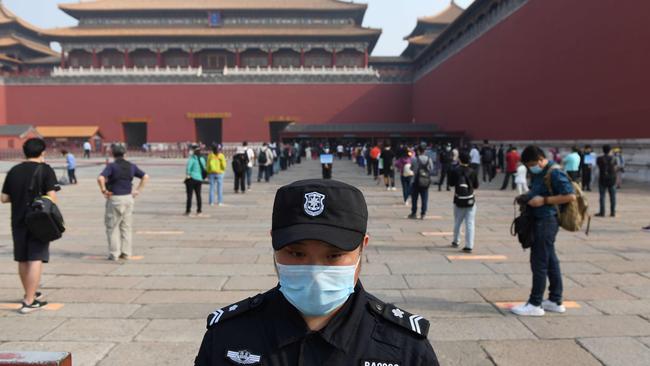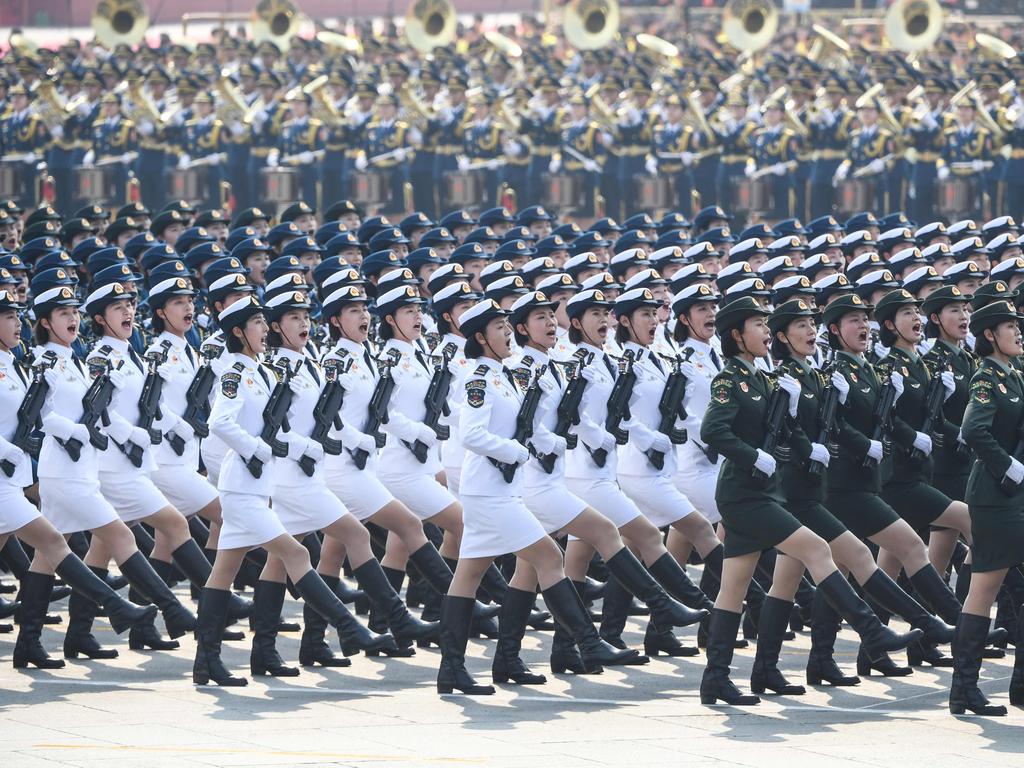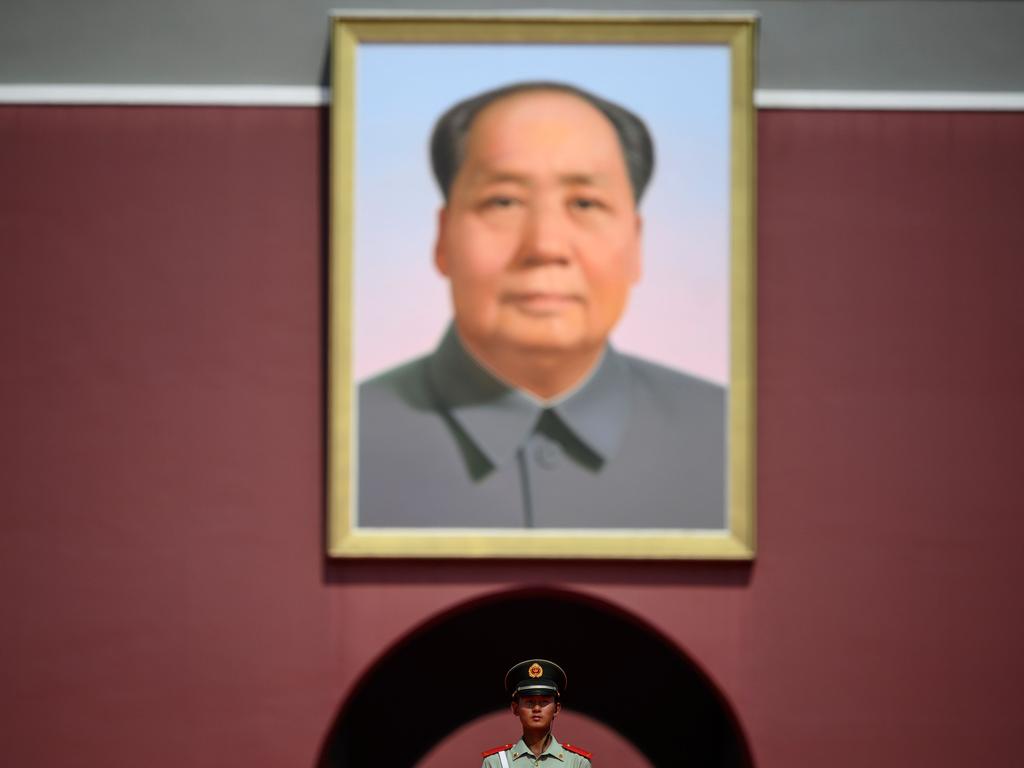Coronavirus: Beijing reopens Forbidden City, parks to public
Beijing’s parks and museums including the ancient Forbidden City reopened to the public on Friday.

Beijing’s parks and museums, including the ancient Forbidden City, reopened to the public on Friday after being closed for months by the pandemic.
The Forbidden City, past home to China’s emperors, is allowing just 5000 visitors daily, down from 80,000. And parks are allowing people to visit at 30 per cent of the usual capacity.
Large-scale group activities remain on hold and visitors must book tickets in advance online, according to Gao Dawei, deputy director of the Beijing Gardening and Greening Bureau.
Beijing on Thursday downgraded its level of emergency response to the virus from first to second tier, but temperature checks and social distancing remain in force.
The change comes at the start of the five-day May 1 holiday and in advance of China’s rescheduled gathering of the National People’s Congress on May 22. The sessions were delayed from early March.
The two-week annual meetings are largely ceremonial, with the legislature rubber-stamping decisions reached earlier by Communist Party leaders, but in typical years they are a colourful spectacle in the nation’s capital.
It’s not yet clear if the 3000 or so delegates of the NPC will come to Beijing, or if sessions will be held virtually through video conference.
China on Friday reported 12 new cases of the virus, six of them brought from overseas, and no new deaths for the 16th day.
The National Healh Commission has reported a total of 4633 deaths from the virus among 82,874 cases, mostly in the central city of Wuhan.
Of the domestic transmission cases, five were in the northeastern province of Heilongjiang and one in the northern region of Inner Mongolia. China reported no domestic transmission cases a day earlier. The NHC reported 25 new asymptomatic cases for April 30, down from 33 a day earlier.
Across the country, 599 patients remain under treatment. Just under 1000 people are under medical observation because they tested positive but don’t show symptoms or have symptoms but testing hasn’t confirmed infection.
Beijing has rejected the prospect of an investigation into the origins of the coronavirus, claiming it would be “based on the presumption of guilt”. Vice-Foreign Minister Le Yucheng told NBC: “One should not accuse China first and then run so-called international investigations just to make up the evidence.”
The first cases were reported in Wuhan, China.
AP, Reuters







To join the conversation, please log in. Don't have an account? Register
Join the conversation, you are commenting as Logout